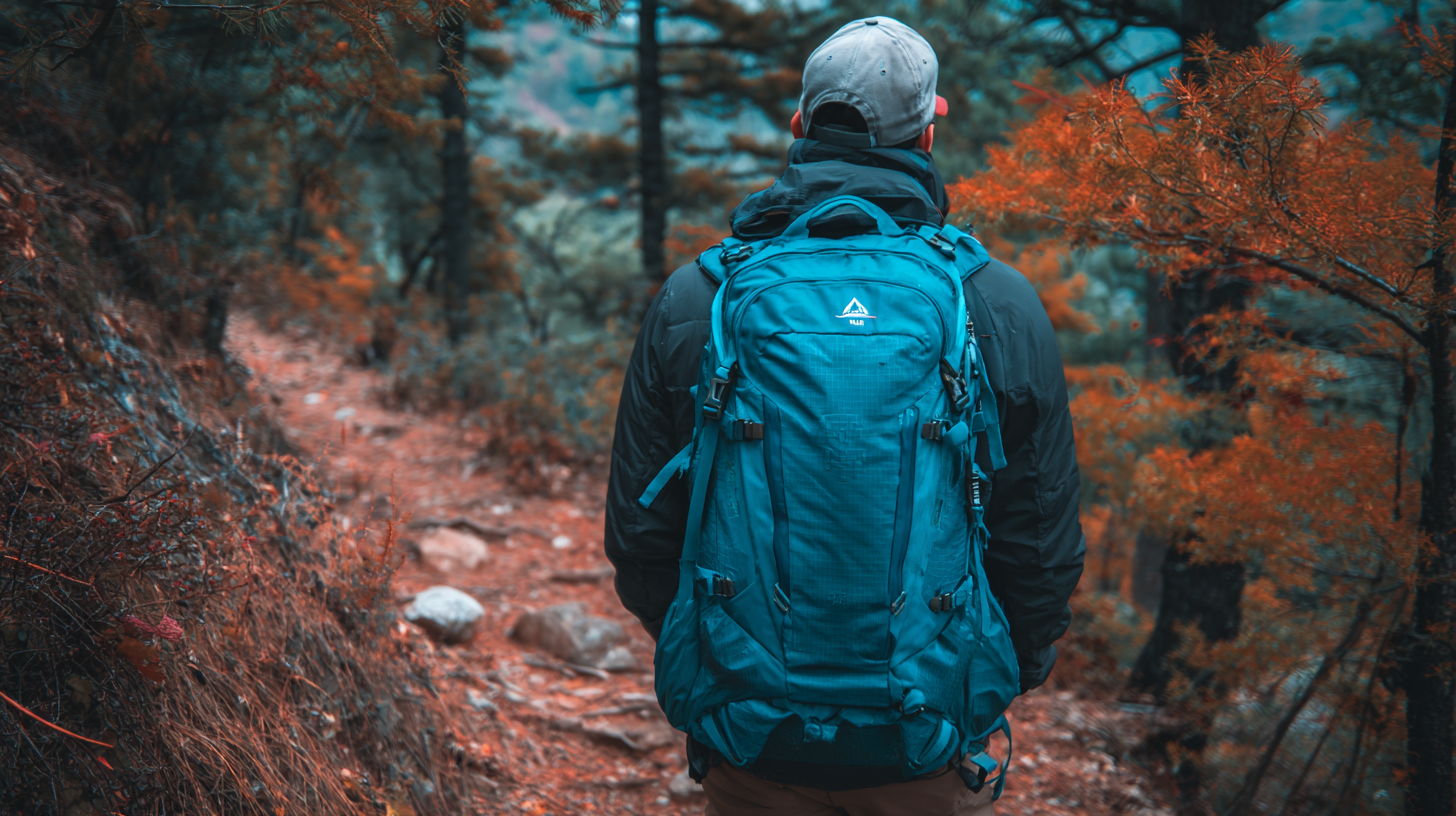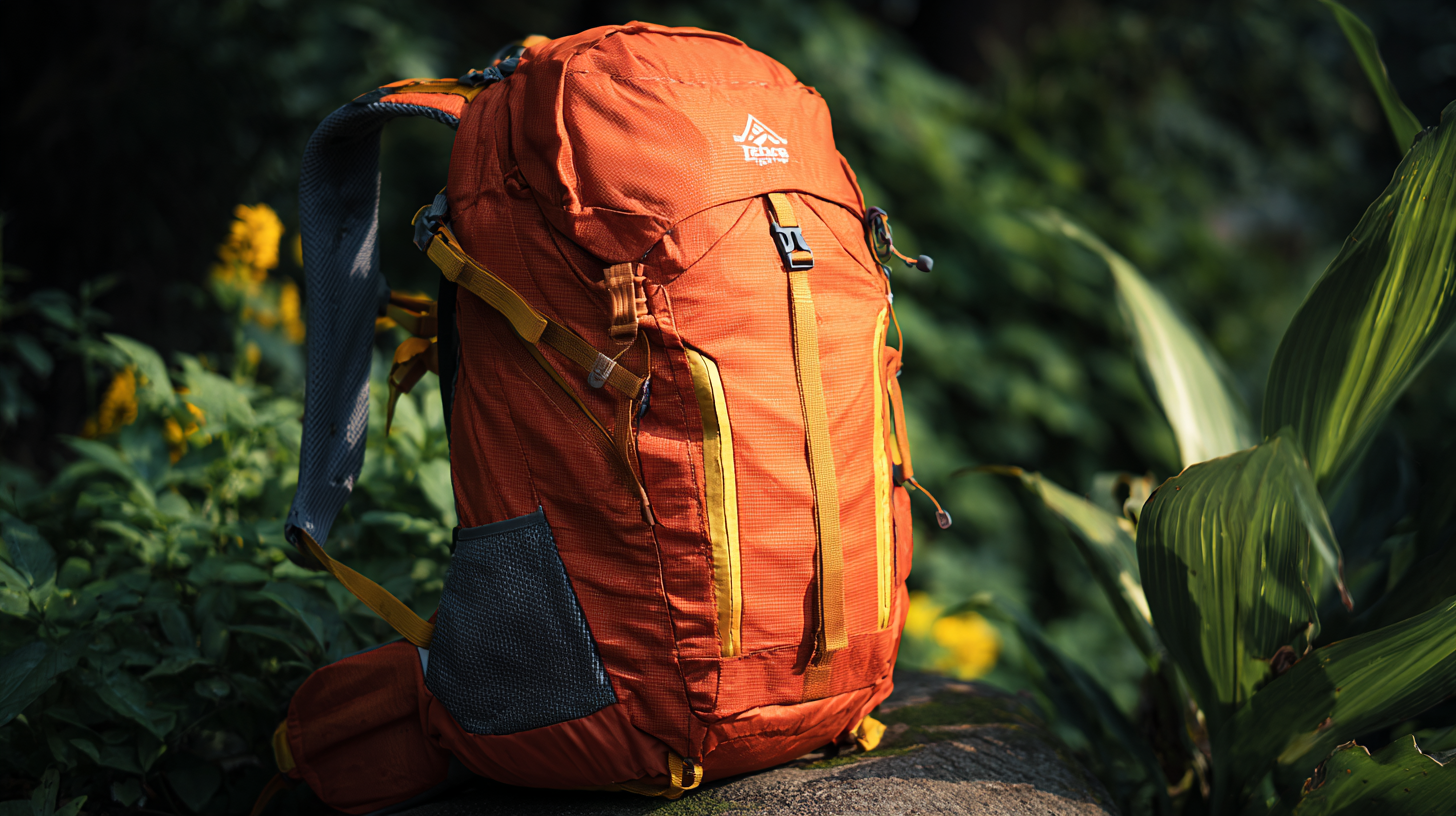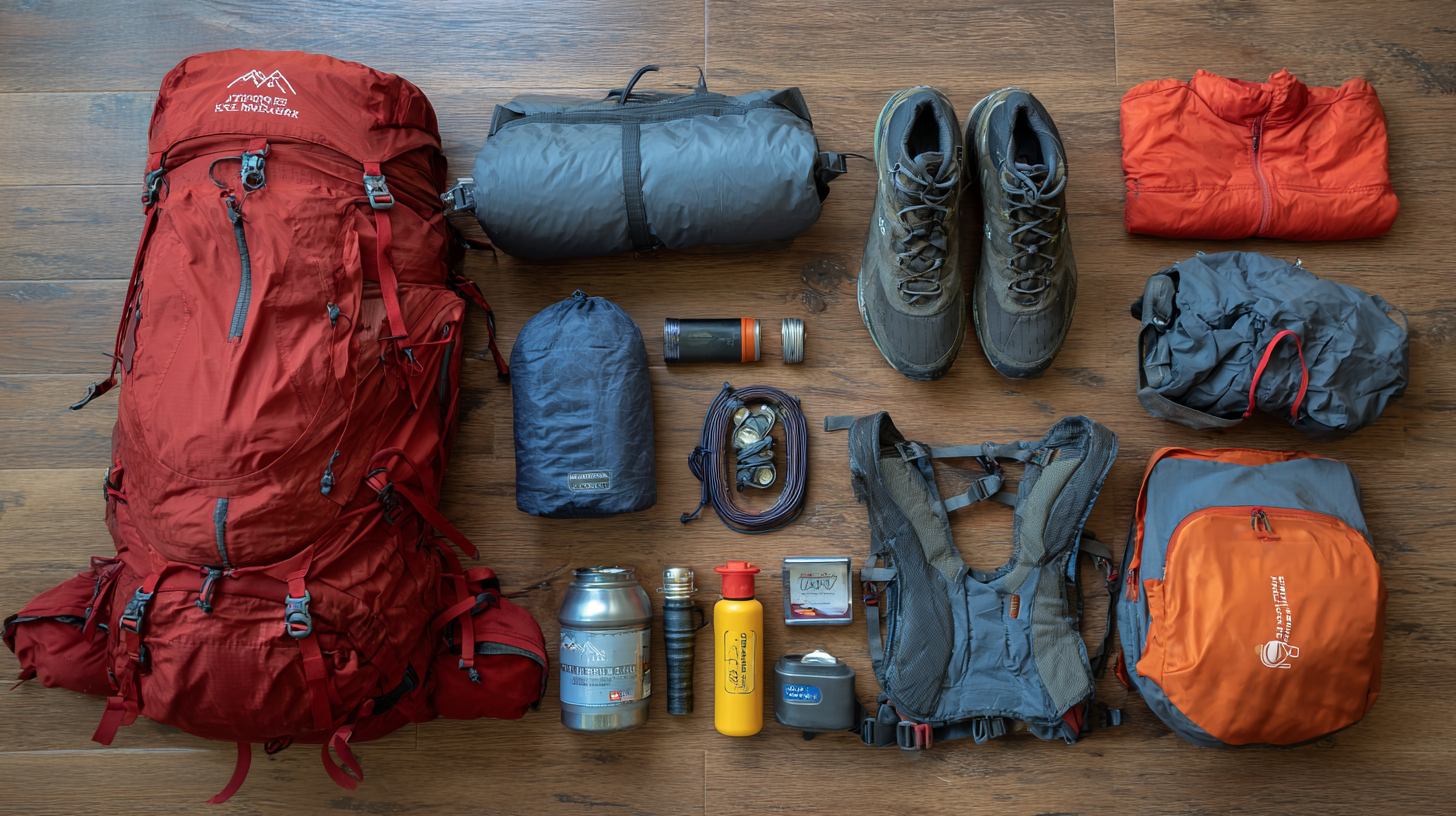Leave Your Message
-
E-mail
-
Whatsapp
When it comes to outdoor adventures, choosing the right Hiking Day Pack can make a significant difference in your experience. According to the Outdoor Industry Association, over 47 million Americans participated in hiking activities in 2020, underscoring the growing popularity of this pastime. An ideal day pack not only provides comfort and convenience but also helps to enhance the overall hiking experience by effectively managing gear and supplies. Recent surveys indicate that 75% of hikers prioritize pack weight and capacity when selecting a pack, highlighting the importance of informed decision-making in the purchasing process. In this ultimate guide, we will delve into the critical factors to consider while choosing the best Hiking Day Pack tailored to your unique adventures, ensuring you’re well-equipped for your next trek.

When it comes to choosing the perfect hiking day pack, three crucial factors come into play: weight, size, and fit. The weight of your pack greatly influences your overall hiking experience. Lighter packs allow for greater mobility and less fatigue over long distances, making them ideal for day hikes where speed and comfort are priorities. Opting for a minimalist design can help reduce unnecessary bulk, but remember to consider the additional features you may need for a successful outing.
Size is another important consideration. A day pack typically ranges from 15 to 30 liters, which should be sufficient for a day's worth of essentials like water, snacks, and extra layers. Assess the length of your hike and the gear you plan to carry to determine the appropriate size. Selecting a pack that offers expandability or extra compartments can provide flexibility for varying needs during your adventures.
Lastly, fit is paramount for a comfortable hiking experience. A well-fitted pack should sit snugly against your back without pinching or shifting as you move. Look for adjustable straps and a hip belt to provide a custom fit that distributes weight evenly. Trying on different models and adjusting them for your unique body shape can make all the difference when you’re navigating rugged terrain or embarking on a long trek.
When it comes to selecting the ideal hiking day pack, the significance of material technology cannot be overstated. High-performance fabrics like nylon and polyester have evolved through innovations like ripstop techniques and water-resistant coatings, offering both lightweight capabilities and enhanced durability. These advancements not only reduce the overall weight of the pack but also increase resistance to abrasions and tears, making a substantial difference in harsh outdoor conditions.
Moreover, the integration of advanced materials ensures comfort during those long treks. Breathable mesh panels and moisture-wicking fabrics promote airflow and prevent sweat build-up, alleviating discomfort and chafing. Additionally, features such as padded shoulder straps and adjustable hip belts crafted from high-quality materials provide a customized fit and distribute weight evenly, reducing strain on your back and shoulders. By focusing on the role of material technology, hikers can select day packs that not only withstand the rigors of the trail but also enhance their overall outdoor experience.
When selecting the right hiking day pack, it’s essential to consider various leading brands that excel in innovation and functionality. Companies like Osprey, Deuter, and The North Face have established themselves as industry leaders by continuously enhancing their designs with features like adjustable harness systems, moisture-wicking materials, and packable rain covers. Osprey’s Anti-Gravity mesh suspension system epitomizes comfort, providing even weight distribution and breathability, which can be a game-changer on long hikes.
Tips for choosing a hiking day pack include evaluating fit and comfort, as a well-fitted pack can prevent discomfort on the trail. Make sure to try on packs with weight to see how they feel when loaded. Additionally, consider storage options and accessibility, such as external pockets for quick access to essentials and hydration reservoirs that keep you hydrated without stopping for a pack break. Lastly, always keep durability in mind; a pack made from high-denier nylon can withstand rugged terrains and challenging weather conditions.
Innovations in materials and designs are also worth noting when comparing options. Brands like Gregory are leading the way with their use of sustainable materials, making them a great choice for environmentally conscious adventurers. By prioritizing these innovative features, you can ensure your day pack not only meets your needs but also contributes positively to the hiking experience.
This chart provides an overview of key performance metrics for hiking day packs, including their average weight, capacity, longevity, and price. Understanding these factors can help you make an informed decision when choosing the right pack for your adventures.
When selecting the perfect hiking day pack, understanding your specific needs and preferences is crucial. Consider the type and duration of your hiking adventures. For day hikes that last a few hours, a smaller pack ranging from 15 to 30 liters is often sufficient. However, if you plan on carrying extra gear for longer treks, a larger pack with a capacity of 30 to 50 liters might be necessary.
One essential aspect to consider is the features of the pack. Look for adjustable straps and a hip belt that provides support and stability. A hydration reservoir sleeve can be invaluable for staying hydrated on the trail. Additionally, consider pockets and compartments: external pockets can be handy for quick access to small items, while a spacious main compartment helps keep your gear organized and easy to reach.
Lastly, pay attention to the material and weight of the pack. Lightweight materials can significantly enhance your hiking experience by reducing the overall load you carry. Waterproof or water-resistant fabrics are great for unexpected weather changes, ensuring your gear stays dry. Selecting the right day pack ultimately enhances your comfort and enjoyment on the trail, making your outdoor adventures even more memorable.

As we look ahead to 2025, the landscape of hiking gear is on the brink of transformation, driven by technological advancements. Day packs will become not only more ergonomic but also smarter. Features such as integrated smart sensors will monitor your hydration levels and physical exertion, allowing you to stay informed about your body's needs while on the trail. The rise of eco-friendly materials will also play a significant role, as manufacturers strive to create sustainable options that reduce environmental impact without compromising performance.

When choosing a day pack, consider looking for one with modular compartments that can adapt to your specific outing needs. This flexibility can enhance your hiking experience by allowing you to organize gear efficiently. Additionally, packing light is essential—aim for a day pack that is both lightweight and durable, ensuring comfort without sacrificing resilience against the elements.
Another tip for the modern hiker is to pay attention to tech-integration features, like built-in charging ports for your devices. This will ensure that you remain connected and can capture your adventures digitally, or navigate more easily with GPS apps. Embracing these future trends will not only enhance your hiking experience but also prepare you for the evolving demands of outdoor exploration.
